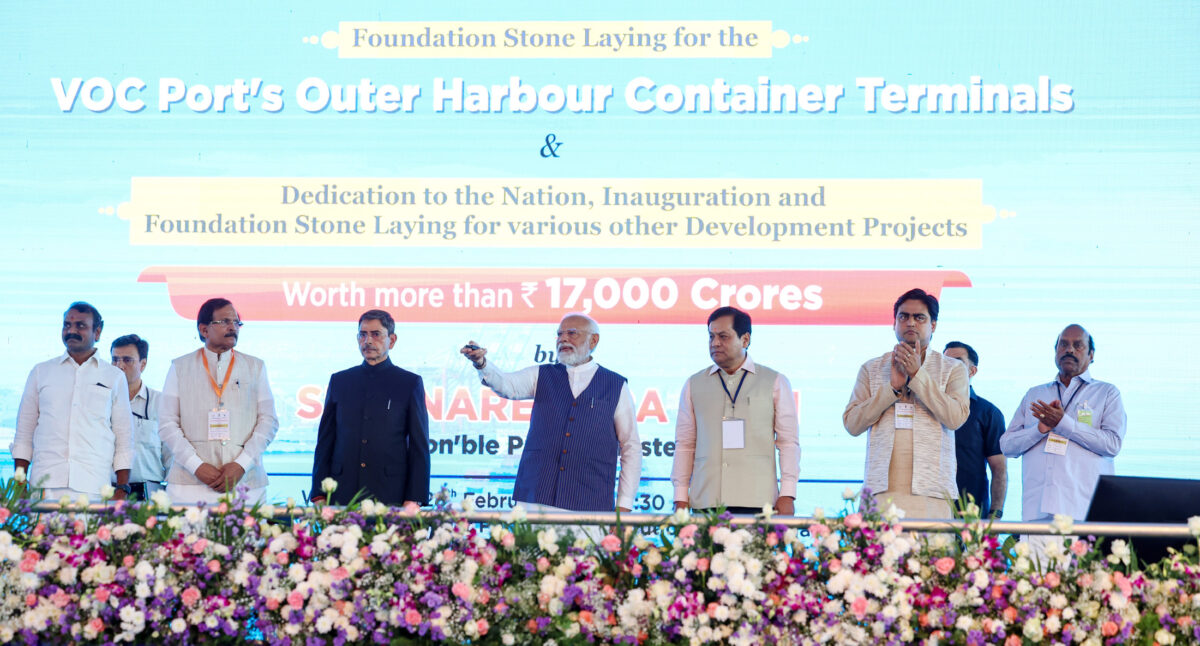Prime Minister Narendra Modi today launched India’s first indigenous green hydrogen fuel cell inland waterway vessel under the Harit Nauka initiative. The vessel is manufactured by Cochin Shipyard, aligning with the nation’s net-zero commitments.
The adoption of green hydrogen as a maritime fuel plays a crucial role in achieving India’s target of net-zero emissions by 2070. In line with the Government of India’s green vision, Cochin Shipyard embarked on the design, development, and construction of India’s first fully indigenous hydrogen fuel cell catamaran ferry vessel as a pilot project to demonstrate the technology for the maritime sector.
“The inauguration of this project will provide the impetus for using hydrogen in marine application as envisaged under National Green Hydrogen Mission and early adoption of hydrogen fuel cell technology in the marine sector will provide it a global competitive advantage where by meeting sustainable green energy aspiration of our Nation for net zero emission,” stated Cochin Shipyard.
The prime minister also inaugurated various other projects aimed at making the V.O. Chidambaranar Port the first Green Hydrogen Hub Port of the country. These projects include a desalination plant, hydrogen production, bunkering facility etc.
Yacht Club de Monaco (YCM) launched “the first autonomous green hydrogen pontoon that can fill 30 cylinders and supply eight teams with green hydrogen in preparation for the Monaco Energy Boat Challenge,” which will take place in July. SBM Offshore installed the floating facility producing green hydrogen from renewable energy. SBM Offshore moored it in the YCM Marina in January. “Weighing 1.3 tonnes, this pontoon has a 20m2 surface area of floating solar panels linked to twice as many batteries to produce hydrogen continuously day and night. Cylinder fill-time is now 1 litre/minute. The pontoon also incorporates a remote control system to monitor electrolyser flow, battery charge, the heating and cooling system, as well as sensors, alarms and a dehumidifier,” said YCM in an emailed note.
Salzgitter Flachstahl has signed a long-term power purchase agreement (PPA) with the generation division of Octopus Energy for the future production of green steel in Germany. Under the PPA, Octopus Energy will supply Salzgitter Flachstahl with 126,000 MWh of electricity over a period 10 years. Salzgitter Flachstahl said it plans to achieve a 95% reduction in carbon emissions with the help of green hydrogen, which will be produced with renewable energy.
Archigas has launched its hydrogen measurement technology. It said that the systems exhibit high resistance to moisture and compact dimensions while detecting and recording quantities and quality of hydrogen in less than 30 milliseconds. The company said in an emailed note that it “offers gas measuring devices in various designs, including for H2 generation through electrolysis, for incoming quality control and gas purity testing as well as for controlling and monitoring gas mixtures.”
This content is protected by copyright and may not be reused. If you want to cooperate with us and would like to reuse some of our content, please contact: editors@pv-magazine.com.









By submitting this form you agree to pv magazine using your data for the purposes of publishing your comment.
Your personal data will only be disclosed or otherwise transmitted to third parties for the purposes of spam filtering or if this is necessary for technical maintenance of the website. Any other transfer to third parties will not take place unless this is justified on the basis of applicable data protection regulations or if pv magazine is legally obliged to do so.
You may revoke this consent at any time with effect for the future, in which case your personal data will be deleted immediately. Otherwise, your data will be deleted if pv magazine has processed your request or the purpose of data storage is fulfilled.
Further information on data privacy can be found in our Data Protection Policy.